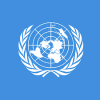5th Meeting of the third substantive session of the Open-Ended Working Group (OEWG)
10 Mar 2021 16:00h - 18:00h
Event report
The fifth meeting of the third substantive session of the Open-Ended Working Group (OEWG) on developments in the field of information and telecommunications in the context of international security dealt with the section on regular institutional dialogue and the discussion section of the First Draft Report.
Some states took the opportunity to present comments to the full text of the First Draft Report, as they had not previously had the opportunity to do so. States also moved from identifying red lines to finding wording to the First Draft Report that could reach consensus by responding to previous suggestions and to the amendments circulated the day before.
Regular institutional dialogue
With regards to the regular institutional dialogue, states discussed the future of the OEWG process through the Programme of Action and through the new OEWG 2021–2025, adopted by the UN A/Res/75/240 (new OEWG).
Regarding the Programme of Action (PoA), France, as one of the initiators, stated that the PoA offers the possibility to continue the work within the OEWG and the GGE, and allows it to go further, which would not be the case in other formats. France also stated that the PoA and the new OEWG are not mutually exclusive. The Netherlands has welcomed the PoA in the First Draft Report and stated that the scope and modalities of such a POA should be just and further developed. In addition, the Netherlands stated that they do not consider the new OEWG regular institutional dialogue given its temporary character and also due to the fact that it was not agreed upon by consensus. The Netherlands indicated its willingness to discuss in the spirit of reaching consensus.
Israel welcomed the exploration of the PoA as a way to incorporate some interesting ideas and opportunities for future regular institutional dialogue. Israel also stated that the PoA needs to be further explored and elaborated and be based on consensus.
The United States called to acknowledge the opportunities of the PoA as a comprehensive detailed proposal that stands on its own with substantial support. The United States stated that relegating it to the workstream of the next OEWG would be unacceptable.
Philippines voiced support for the PoA but noted that it needs to be further elaborated within the new OEWG.
Cuba aligned with Russia, Iran, and China stating that there is a need to implement the already agreed commitments, including legally binding norms and obligations. Cuba suggested that all of the initiatives be set on equal footing – the PoA, the new OEWG, as well as any other member states initiatives, such as the Chinese Global Initiative on Data Security.
Nicaragua stated that the new OEWG is the ideal platform to continue current discussions and initiatives and suggested changes to formulations to put the PoA and the new OEWG on equal footing.
Pakistan expressed willingness to discuss all initiatives and to move the discussions further, including the PoA and the Global Initiative on Data Security, but considers the new OEWG to be the most appropriate platform for these discussions.
Australia thanked China in particular for its very constructive approach with respect to their Global Initiative on Data Security.
India stated that the discussions in the current OEWG are not sufficient to make any recommendations at this stage.
Discussion section
States further deliberated on the discussion section of the report, with the general agreement voiced by Malaysia, Singapore, the Netherlands, Egypt, Suriname on behalf of CARICOM, New Zealand, Haiti, Kenya, United Kingdom, Canada, and others that the discussion section is a rich resource of the substantive discussions within the current OEWG. Russia noted that this part of the document appears to be insufficiently objective and insufficiently balanced, requiring significant reworking.
Views of the countries on whether to include the discussion section in the Final Report were divided. While some countries preferred to have the discussion section in a separate document, such as the Chair’s Summary (Russia), others preferred it to be included in the report itself (the Netherlands, EU, New Zealand, South Africa, Canada). States that wanted the discussion section to be an integral part of the Final Report would consider, in the spirit of reaching adoption of the agreement, suggestions on the form by the Chair. The third group of states, which included Egypt, Mexico, Brazil, and others indicated flexibility in the form the discussion section will be presented, noting that the content of the discussions needs to be preserved.
Other points
States also discussed the Non-Aligned Movement statement and the inclusion of its recommendations in the Final Draft Report, specifically regarding the principle of common, but differentiated responsibilities and with regard to bridging the digital divide.
Throughout the deliberations, the majority of states expressed the view that they are close to consensus and are willing to consider compromise proposals of others with the aim of garnering consensus and finding mutually acceptable wording of the Final Report.
Related topics
Related event

